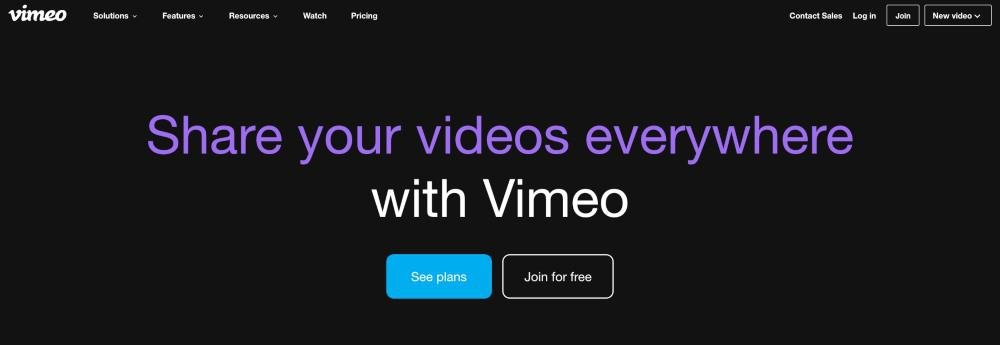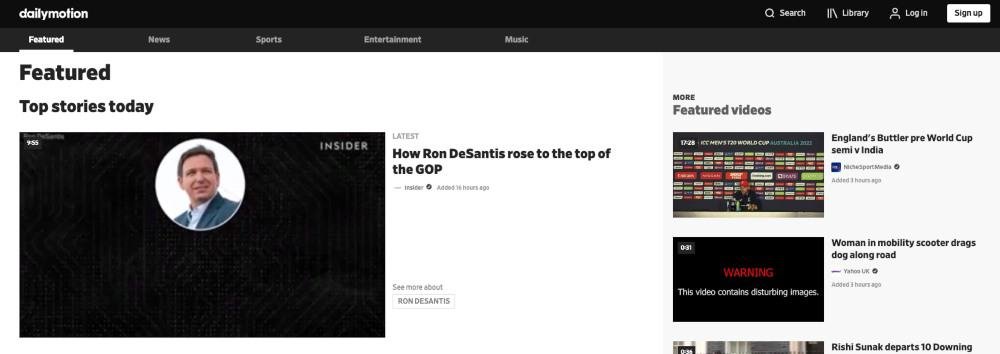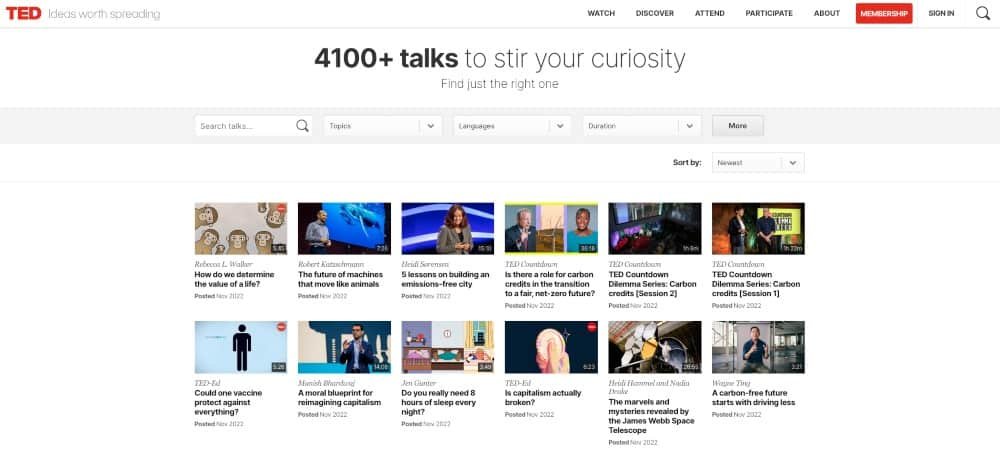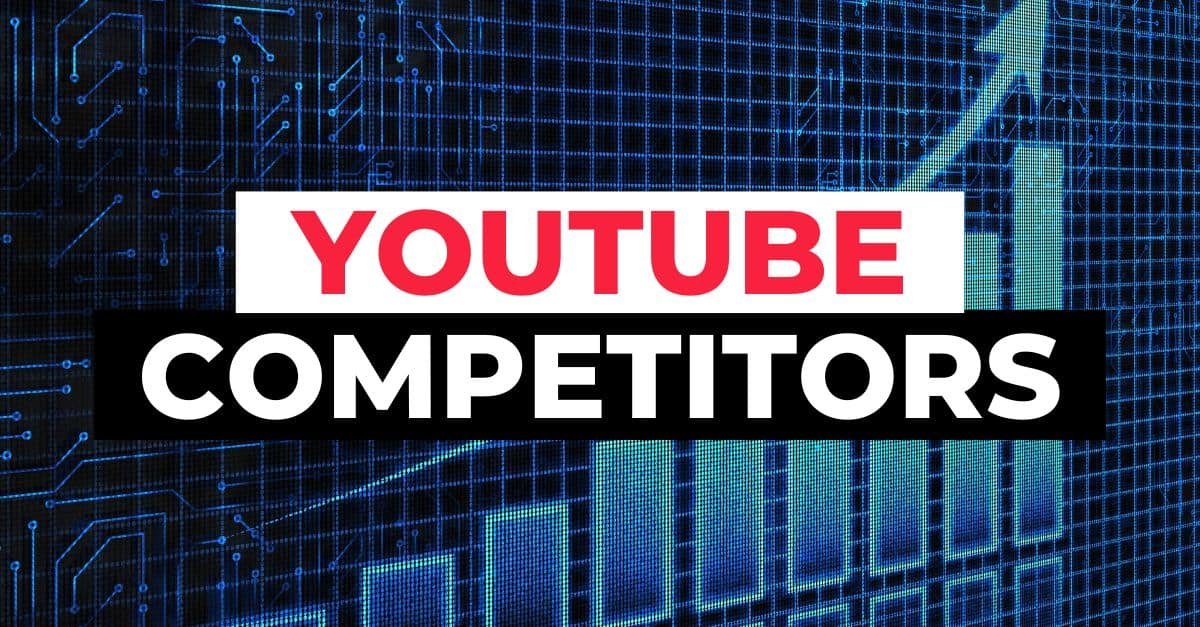YouTube, purchased by Google in 2006, is still the most popular video-sharing platform. As of 2023, it has a market capitalization of over US$180 billion and has localized interfaces in 108 regions and countries.
However, with critics of YouTube seeking better privacy and unique content, many have moved to other platforms to share their videos. Here we list some of those competitors.
9 of the best YouTube Competitors:
- Vimeo Video Marketing
- Metacafe Short Form Videos
- 9GAG Meme Community
- Dailymotion Video Hosting
- Tik Tok Mobile Videos
- DTube Video Sharing
- TED Talks
- Utreon Video Platform
1. Vimeo

Vimeo is first on our list as it is arguably the biggest competitor to YouTube. The basic free version includes a 500Mb weekly upload limit with premium subscribers allowing for 5Gb.
However, the limit does not extend to video length, so a full-length movie is possible.
One of the most significant advantages of Vimeo is that it allows for the locking of video access to specific domains and then offers them for sale if you so choose.
Unfortunately, there is no monetization for content creators. However, there are no annoying adverts either.
Vimeo also supports almost any video format, including MP4, AVI, MPEG4, MOV, FLV, and 3GP. Videos are embeddable, and it does support several languages. Pornography is banned.
2. Metacafe
Launched by two Israeli entrepreneurs in 2003, Metacafe rose very quickly and became one of the most popular video-sharing websites in a few short years before being overtaken by YouTube, Dailymotion, and Vimeo.
It hosted a massive collection of videos, no longer than 180 seconds and of lower quality, not exceeding 100Mb.
Videos were categorized, and viewers could subscribe to access specific playlists or channels.
Instead of automatically uploading videos, the content is judged by 80000 volunteers before being added to the channel.
As of August 2021, the website became inactive, and Metacafe’s social media pages fell silent. Videoshub.com has since taken over Metacafe’s URL.
3. 9GAG TV
Based in Hong Kong, 9GAG aims at younger, social media-savvy users who wish to share videos and pictures from other social media platforms such as Facebook, Instagram, and Twitter.
The proliferation of internet memes has boosted 9GAG’s appeal in recent years. So too, has their app for iOS and Android.
9GAG has faced criticism for stealing meme authorship by allowing shared content branded with its own watermark, thus claiming original content.
9GAG was also accused of promoting discrimination of certain minorities by allowing heterosexual masculine exclusion of others.
4. Dailymotion

Headquartered in Paris with around 330 employees, Dailymotion is one of the big players in video hosting.
With flexible revenue-sharing models available, Dailymotion has become popular with content creators and can brag about a user base above 350 million and a viewership of over 112 million hits a month.
Video length is capped at 20 minutes even though up to 4GB file size and 1080p are supported, as long as you are a pro user.
In addition, videos are not compressed, as is the case with YouTube, and there is no charge to upload videos.
5. TikTok
TikTok is the international version of the Chinese short-form video-sharing service “Douyin.” Owned by ByteDance, it has seen phenomenal success since its original release in September 2016.
With its target market being the young and hip, it is very popular with celebrities.
TikTok’s appeal is its simplicity. There are plenty of free music, sounds, and real-time filters which the user can apply to make the videos more appealing.
Revenue is generated through sponsorships and brand endorsements. Popular “influencers” can earn handsome returns directly from companies for promoting their brand.
The allowed video length has shifted from 15 seconds to 3 minutes to 10 minutes as of February 2022. The app is mainly downloaded for smartphones and tablets, making it easy to use and convenient for those on the move.
Cloudflare ranked TikTok the most popular website in 2021, surpassing even Google.
Much criticism has been leveled at TikTok’s psychological effects on its young audience, such as addiction and inappropriate content.
These concerns, however, have not dampened TikTok’s meteoric rise in popularity.
6. DTube
DTube’s graphic interface will look familiar to those accustomed to YouTube’s layout, but that is where the similarities more or less end. DTube focuses on privacy and security, and the data is not centrally stored on a server, as with YouTube.
DTube’s videos are stored in a blockchain, similar to how Bitcoin is stored. As a result, the community looks after the content, making it safer from intrusion by hackers and protecting the videos from any tampering.
Another significant difference from YouTube is that users are not bombarded with adverts, and there is no algorithmic recommendation of content based on your history.
DTube also supports free speech, allowing the community to moderate content that is not appropriate, making it truly democratic.
Content creators are rewarded with cryptocurrency, and so are the users. Anyone can earn crypto by posting, upvoting, or curating content.
Published content cannot be deleted or edited, and each video shows crypto earnings instead of view counts, making this platform unique.
7. TED

TED is one of the most well-known non-profit initiatives worldwide. Its focus is on hosting conferences, podcasts, and videos that feature many prominent professionals and just about anyone with something interesting to share.
After all, this educational platform’s motto is “ideas worth spreading.”
Talks are conducted on almost any topic, including politics, science, technology, culture, humanitarian issues, and academics.
TED employs 180 people at their New York and Vancouver offices, and venues change from time to time. Currently, conferences are held in Vancouver, Canada.
Revenue is generated by annual membership fees, which provide access to the venues, and since 2006, TED talks have been free online.
In addition, each year, a TED prize is presented to the lucky participant.
Featured speakers have included luminaries such as Stephen Hawking, Bill Clinton, Bill Gates, Julian Assange, Elon Musk, Jane Goodall, and Richard Dawkins, to name a few.
8. Instagram
Instagram launched IGTV in 2018, and it flopped quite badly. Meta, Instagram’s parent company, announced its closure in March 2022, and IGTV was removed from app stores.
It has since been re-incorporated into the Instagram app, and the company has shifted focus to developing Instagram Reels instead.
Needless to say, the short form content of Reels has been a much more successful enterprise for Instagram.
9. Utreon
Utreon combines the functions of both Patreon and YouTube. Supported by both advertising and subscriptions, it allows for seamless monetization for content creators and pays better than YouTube. 75% of the revenue generated goes to the video maker.
The desktop and mobile layout for Utreon is very user-friendly, and navigation is easy.
In addition, videos up to 4K can be automatically synchronized with YouTube, so there’s no need to upload from both platforms.
Utreon’s advertising model is still developing, yet it does not promote specific content by employing a more transparent algorithm.
On the other hand, Utreon has a lot of the same content as YouTube, making it attractive to users looking for a similar alternative.
Final Thoughts On The Best YouTube Alternatives
There are several YouTube alternatives out there that have found their own niche audiences.
If you’re looking for something different, check out TikTok, Utreon, Vimeo, 9GAG, Dailymotion, or DTube.
Each one has its own unique focus that may be just what you’re looking for.
So take some time to explore and discover your best youtube competitor.
